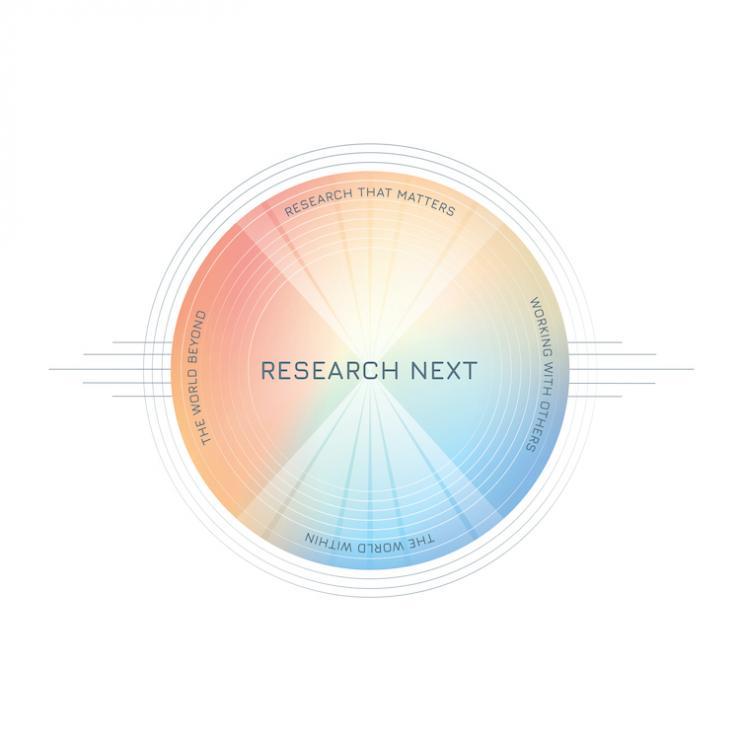Future of University Research is Subject of March 17 Town Hall
Mar 16, 2021 — Atlanta, GA

Research universities will likely face significant challenges ahead, and addressing them begins with understanding the issues involved. That is the goal for the Phase 1 report from the Commission on Research Next (CRN), an initiative brought together by Georgia Tech’s executive vice president for Research, Chaouki T. Abdallah.
The CRN – led by Tim Lieuwen, Regents Professor, David S. Lewis Jr. Chair in the Daniel Guggenheim School of Aerospace Engineering, and executive director of the Strategic Energy Institute; and Wen Masters, deputy director, Information and Cyber Sciences in the Georgia Tech Research Institute (GTRI) – tapped the knowledge and expertise of Georgia Tech faculty, staff, and students to analyze what the research landscape will look like ahead, for Georgia Tech and for other research-intensive universities.
The report’s authors will provide an overview of their findings at a town hall meeting on Wednesday, March 17, at 1 p.m. at primetime.bluejeans.com/a2m/live-event/czadczdq. The Phase 1 report will be available online after the presentation at researchnext.gatech.edu.
The report includes six chapters:
- Framing the Research Landscape (Chapter 1) sets the stage by asking one question: If we were to develop the university research enterprise from scratch, what would it look like? This question arises from the growing complexity and interconnectedness of modern research universities.
- The World Beyond (Chapter 2) analyzes the external global factors that are beyond the control of any individual research university, but which affect how these universities function. Specifically, it addresses how evolving conditions could shape the topics, methods, funding, partnerships, and other resources important to conducting research.
- Research That Matters (Chapter 3) identifies grand challenges, emerging topics, and requisite methods that will be addressed at major research universities. By tackling these areas, leading research universities will enhance society by fostering discovery through curiosity-driven research.
- Working With Others (Chapter 4) focuses on university partnerships, analyzing the connection between research, education, and the value flow between them. In particular, it addresses the question of how research universities can cultivate a portfolio of purposeful strategic relationships, amplifying impact across individual, institutional, city, state, regional, national, and global dimensions.
- The World Within (Chapter 5) examines the explicit and implicit functions and structures employed by the university research ecosystem to carry out its mission.
- Chapter 6’s Closing Remarks bring together the findings and set the stage for the second phase of the initiative – developing a plan for how the Georgia Tech research enterprise will respond to the challenges identified.
A second team of faculty, staff, and students is now working on Phase 2 of the effort, which will be to develop a strategy for how Georgia Tech’s research enterprise will – in alignment with the Institute’s new strategic plan – move forward into the decades ahead. There are 82 members of committees working on the six goal teams for Phase 2.
To join the town hall, go to: primetime.bluejeans.com/a2m/live-event/czadczdq.
Institute Communications




